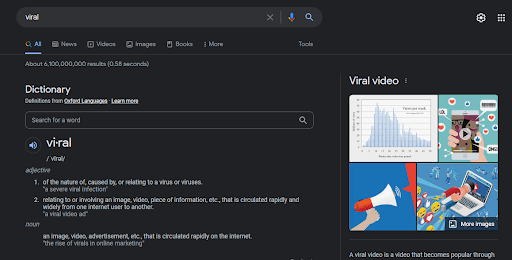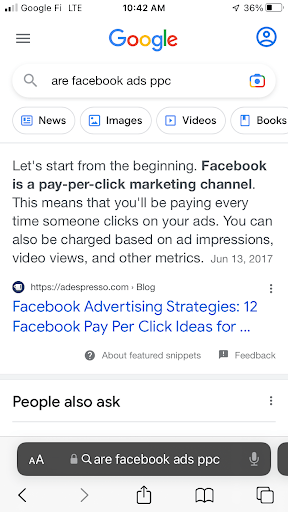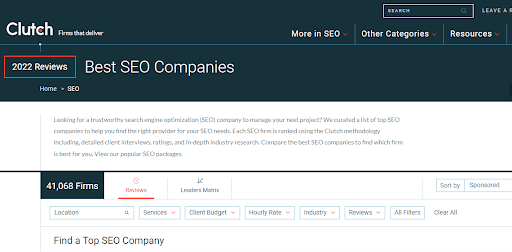Ethical SEO Marketing in the Era of Misinformation
Today’s consumers have a whole world of information literally at their fingertips, but that does not mean that all information is good information. This is why it is incumbent on business leaders and marketers to prioritize ethical SEO as a means to combat misinformation.
Audiences today have a seemingly infinite storehouse of information right at their fingertips. With the touch of a button or the swipe of a digital screen, we can instantly pull up the answer to almost any question.
However, with the good always comes the bad. The downside to having access to nearly an infinite storehouse of information is the proliferation of misinformation.
Indeed, false, erroneous, and downright misleading content is ubiquitous online; it’s as easy to find as reliable content, if not easier. In fact, there is significant evidence that bad information often generates the greatest amount of interest, particularly when it is inflammatory, partisan, simplistic, or sensational.
Thus, one of the most important techniques for promoting credible, high-quality web content is through ethical search engine optimization (SEO) strategies.
This article will cover how SEO contributes to misinformation as well as how people can use SEO strategies to combat it. Additionally, we will touch on the responsibility we have as marketers to follow good SEO practices.
Looking for a reputable SEO Company? Top Design Firms has compiled a list of top SEO firms based on client ratings.
Need help selecting a company?
Based on your budget, timeline, and specifications we can help you build a shortlist of companies that perfectly matches your project needs. Get started by submitting your project details.
How SEO Impact Misinformation Spread
On the web, as in business, popularity matters. Whether you’re an entrepreneur, a marketer, or a content developer, your priority is to generate products that get attention and materials that ensure results.
Unfortunately, though, less-than-scrupulous individuals will often take shortcuts to achieve their desired outcomes, particularly if it means that you can attract eyeballs and clicks with a minimal investment of time, effort, and money.
This makes black hat SEO and other dirty tricks more appealing to those trying to attract traffic to their site.
Black Hat SEO is a term used to describe bad practices to improve rankings on SERPs. For example, buying links, adding keywords into the footer of a web page, hidden links, clickbait, and content spam are all considered black hat SEO strategies.
Black hat strategies and other unethical practices mean that what’s circulating on the web is mostly all sizzle and no steak. It’s about exploiting audiences’ spurious interests and habitual behaviors to create content that generates both clicks and shares.
Unethical content producers know that there are few better ways to get an audience’s attention, incite a response, and conceal the low quality of the content than by making fantastical claims and using incendiary language. And as the pandemic has shown us, these techniques can be especially prevalent, effective, and dangerous when it comes to the spread of health misinformation.
Going Viral
The nefarious impacts of misinformation tactics can be long-lasting and wide-ranging because the more clicks and shares a site or page generates, the more likely it is to rank highly on a search engine results page (SERP).

And that means that this type of content will become increasingly accessible and visible to more searchers. In turn, this increases viewers’ engagement with the content, further increasing the SERP ranking. So the cycle begins, and so the misinformation spreads like the virus for which the phenomenon is named.
For example, this outdated article about how Facebook Ads work still ranks at the top of Google SERPs even though the information it presents is wrong.

This article falsely claims that Facebook follows a pay-per-click advertising model. However, Facebook actually follows a bidding model. Companies are charged based on an auction system where ads compete for impressions based on bid and performance.
Yet, this article continues to rank highly, contributing to the spread of misinformation.
Fortunately, though, there are increasingly effective mechanisms in place to put the brakes on the viral spread.
Google, for instance, has updated its processes numerous times over the previous decades in order to circumvent black hat SEO practices. This includes, for example, creating algorithms that rely less heavily on keywords and more on context, relevance, and credible source linking.
These algorithm updates indicate whether a page is trustworthy or not, which can promote fact-based information.
How to End Misinformation Through SEO
As harmful and as ubiquitous as misinformation is in the online environment, though, there is hope.
Marketers are in a unique position to help contain and even stop the flow of misinformation through ethical SEO practices.
The best SEO companies are trustworthy, and trustworthiness is about telling the truth.
That’s why the most important SEO technique, by far, lies in ensuring that the SEO content you produce is deeply evidence-based and built on highly credible research, to which the content is linked.
In addition, ethical SEO marketing requires content creators to ensure that they have a valid and holistic “big picture” view of the subject matter at hand.
That’s going to involve not only robust external research but also skilled, strategic internal research, research specifically designed to overcome the organizational silos that almost inevitably emerge across departments within a company.
This means that ethical marketers will need to build strong relationships with colleagues institution-wide, cultivating a thriving information network through which relevant data flow expediently and transparently.
Indeed, breaking down organizational silos in this way is often an essential and important first step in successfully engaging in original research, which can be a profound asset for marketers seeking to build an organization’s brand in responsible and meaningful ways.
Your marketing efforts will be contributing to industry knowledge, which is a core attribute of ethical and effective SEO marketing.
Why Ethical SEO Marketing is Essential in Business
Nowhere is ethical SEO more important than in the business-to-business sphere, where companies don’t have time to spend weeding through misinformation.
Accurate information is as important as reliable products and services — if not more so. The reason for this may seem self-evident, but it’s worth pointing out. Information comes first.
Once a company is able to engage with the information you provide and finds it trustworthy, that company is more likely to view your company as a subject-matter expert, which will help them look to you for products and services in your niche.
Conversely, misinformation in content hurts a company’s reputation as it markets to other companies. This isn’t dissimilar to the B2C world, but there is one big difference: numbers.
While a single consumer might be hoodwinked by a company’s inaccurate claims, a single business involves multiple people looking to engage with, and possibly do business with, another business.
Black hat SEO tactics might somehow get an unethical business through another business’s door, but there will be more eyes on the claims the business in question is making, as well as its products or services. Increased scrutiny from management may render a transaction dead at the get-go.
Or, if the unethical business manages to sell your business on its product, there’s a very good chance your employees will see that business for what it is as they’re using the product.
Therefore, a single B2B transaction that began with unethical SEO creates ripples of hundreds or thousands of people who will not recommend the culprit’s products or services.
By following ethical marketing practices, companies can reduce misinformation spread and promote their business while they’re at it.
What is Ethical Marketing?
Ethical marketing is when companies consistently abide by their principles in their advertising and other marketing strategies. This includes following these principles of ethical marketing
Principles of Ethical Marketing
- Be transparent and honest
- Adopt a customer-first attitude
- Protect consumer data
- Provide reliable information
- Don’t exaggerate or make false comparisons
- Keep in mind the social and environmental impact of your business
While many businesses focus on their company values as a promotional strategy, ethical marketing is truly about being honest in their promotional efforts.
Ethical SEO Strategies Combat Misinformation
Misinformation is more than just a nuisance. Now, more than ever, misinformation can be dangerous, even deadly.
Unfortunately, it is also prolific, spreading rapidly online. The good news, though, is that business leaders and marketing professionals are in a unique position to end the flow of misinformation through ethical SEO marketing.
This includes ensuring that all marketing content is based on the highest-quality evidence, credible data, and research that audiences can easily access through embedded links or comprehensive source pages.
In addition, ethical SEO marketing prioritizes original research and the dismantling of organizational silos to ensure an accurate and holistic view of the subjects at hand. The right SEO agency can help your company engage in ethical SEO that Google and other search engines will look at favorably when they’re ranking pages.
Additional reading
Need help selecting a company?
Based on your budget, timeline, and specifications we can help you build a shortlist of companies that perfectly matches your project needs. Get started by submitting your project details.
